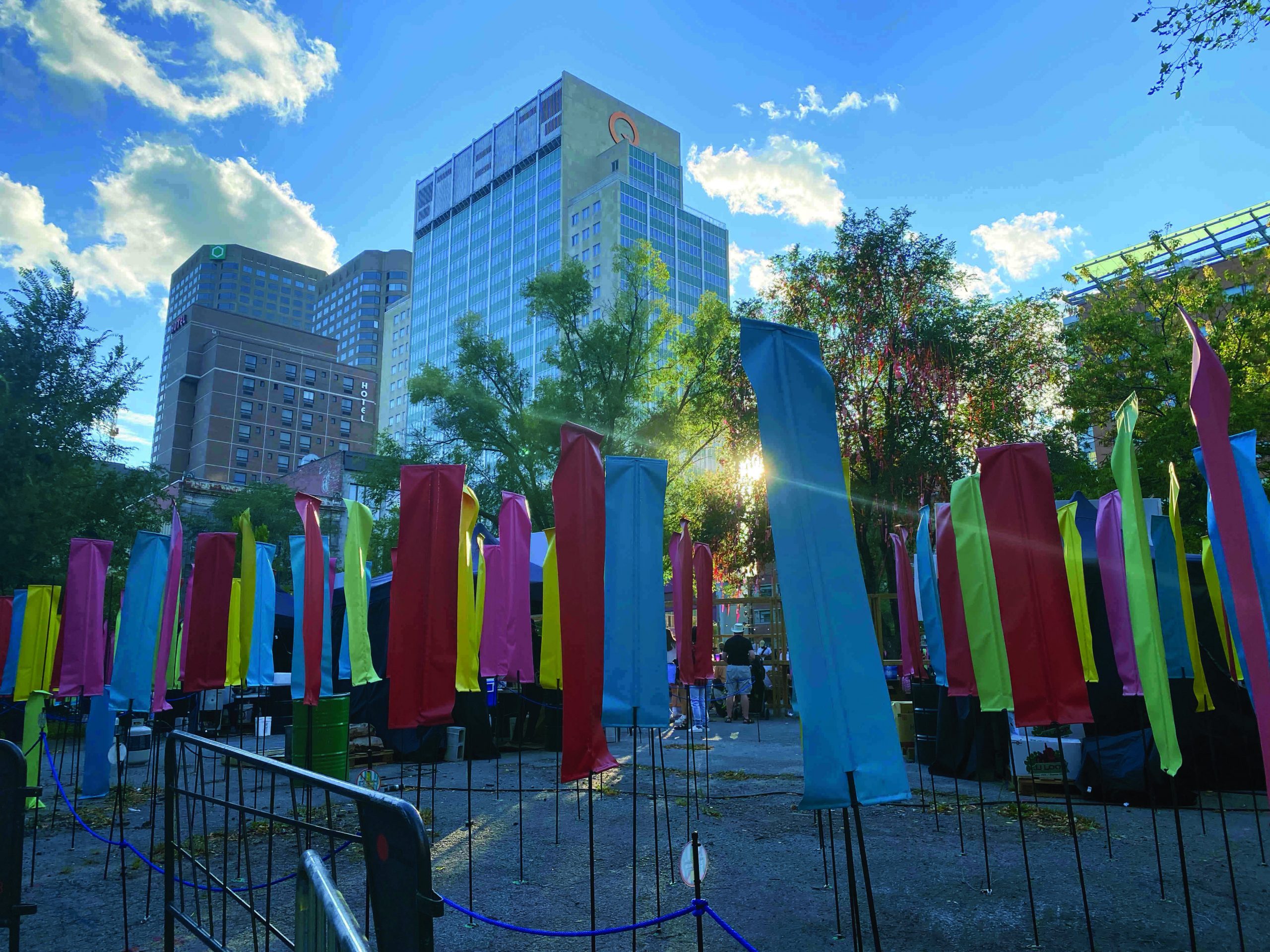There was once a time when the terms “Pride” and “Chinatown” would not be associated unless you were talking about a restaurateur’s delight in the quality of their har gow (Cantonese dumplings). However, these days in Montreal’s Chinatown district, pride has a new meaning.
On Sept. 12, queer folks and allies united at Place des Souhaits for “Fierté au Quartier Chinois,” an event organized by Sticky Rice magazine, to celebrate Chinatown’s first pride and to mark the magazine’s one-year anniversary.
In an interview with The McGill Tribune, Viet Tran, Sticky Rice’s editor-in-chief, explained the importance of the event for Montreal’s queer Asian community.
“It became necessary to break the silence around [being queer and Asian],” Tran said. “What has been expected from Asian folks was to be quiet and to make ourselves discreet.”
Sticky Rice magazine explores what it means to be an Asian Canadian by highlighting the experiences of the Asian diaspora communities across Canada. Through essays, interviews, films, and other mediums, the magazine promotes an ever-changing dialogue around Asian-Canadian culture and identity.
Sticky Rice was founded in 2020, when anti-Asian hate crimes were on the rise. Amid this difficult period, the team decided it was time for Asian-Canadians to express themselves creatively from a place of vulnerability and authenticity.
The challenge to explain and understand what queer folks experience in predominantly Asian spaces is a difficult one, as Asian cultures are not homogenous. All with their own traditions, values, foods, belief systems, and people, Sticky Rice and its contributors recognize that they cannot speak for the experiences of all queer Asians.
“It’s not a secret that older generations are known to be more conservative with regard to sexual diversity,” Tran said. “There’s also something to be said about the relative lack of jargon in many Asian languages to address LGBTQ+ issues. We’re hoping that by giving queer Asians the permission to celebrate themselves in a more traditional neighborhood will inspire them to continue taking up space.”
Tran felt it was important to invite people from all demographics to the event.
“I do think that in any culture in which the pillars of family life sometimes take priority over individual differences, there are more efforts put into calling in people from all generations,” Tran said. “It was really important that this event be multi-generational, because the goal was to build bridges between younger queer demographics, local business people, and their legacies.”
Last weekend’s event featured performances from Montreal-based artists Hua Li, Waterboi, Miranda Chan, Beau Gomez and Die Nasty, Molly Gum, Frantz Lin, and Kai.
Frantz Lin described the significance of the event for him and others involved.
“As far as I know, this was the first Pride in Montreal’s Chinatown, period,” Lin said. “It’s historic. It’s pretty important for Asian and Chinese youth to take our energy and community to partake in and claim Chinatown.”
Attendees enjoyed Asian street food and drinks provided by the on-site Asian Night Market and also learned about the Chinatown area through community-led walking tours.
Tran described the significance, and importance, of holding this event in Chinatown.
“It’s a neighbourhood that harbours a lot of cherished memories for us and our families, so we wanted to really pay respect to its history and to the resilience of its culture through guided walking tours, and by re-appropriating the space through an Asian-led party,” Tran said.
Sticky Rice’s second volume focusses on opening up the conversation around what it means to be Asian and queer. Titled (BE)LONGING: The Queer Edition, the volume showcases queer Asians from all backgrounds who have not historically been centred in mainstream 2SLGBTQIA+ platforms.
“As a musician of Asian descent, it also meant a lot to have such a diverse audience full of allies alongside the intergenerational support I felt from other Asians in the audience,” Montreal-based performer Hua Li said. “Sticky Rice highlights the margins of the Asian experience and gives us the space to break free from the model minority myth.”








